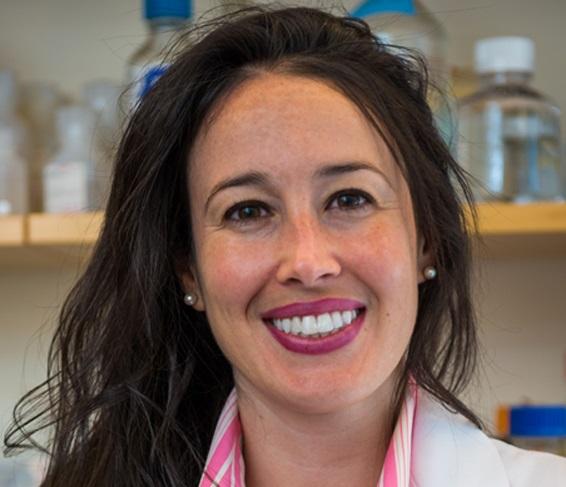Dana-Farber’s Cigall Kadoch selected as a Howard Hughes Medical Institute Investigator
Cigall Kadoch, Ph.D. of Dana-Farber Cancer Institute has been named as a Howard Hughes Medical Institute (HHMI) Investigator. Kadoch will join a prestigious community of Investigators who are tackling some of the most challenging problems in biomedical research and propelling groundbreaking scientific discoveries. The HHMI Investigator Program currently supports more than 250 Investigators, located at more than 60 research institutions across the United States, who are widely known for their innovation and their success in pushing the bounds of knowledge in biomedical research.
As an HHMI Investigator, Kadoch will receive $9 million over a 7-year term, which is renewable pending a successful scientific review. HHMI selected Kadoch and 32 additional new Investigators from a pool of more than 800 eligible applicants. HHMI Investigators have made significant contributions across many research areas, including nanotechnology, virology, microbiome, optical physics, immunotherapy, neurodevelopment, among other fields.
“Selection as an HHMI investigator is one of the most prestigious honors in science and we are thrilled that Cigall Kadoch has been selected,” said Laurie H. Glimcher, MD President and CEO of Dana-Farber. “In her young career, Cigall has already made significant contributions in biomedical research and this new support from the HHMI will enable her laboratory to continue their important work and embark on new avenues of scientific inquiry and discovery in the years ahead.”
Kadoch, is an Associate Professor of Pediatric Oncology at the Dana-Farber Cancer Institute and Harvard Medical School, Affiliate Faculty of Biological Chemistry and Molecular Biology at Harvard Medical School, and Institute Member and Epigenomics Program Co-Director at the Broad Institute of MIT and Harvard.
She established her independent laboratory in 2014, at age 28, one of the youngest scientists ever appointed to the Harvard Medical School faculty, immediately following completion of her Ph.D. studies in Cancer Biology at Stanford University. She has quickly become a leading expert in chromatin and gene regulation and is internationally recognized for her groundbreaking studies in these areas. Kadoch’s laboratory studies the structure and function of chromatin remodeling complexes, particularly, the mammalian SWI/SNF (or BAF) complex, with emphasis on defining the mechanisms underlying disease-specific perturbations.
Kadoch has received numerous awards and research grants to support her academic laboratory, including the NIH Director's New Innovator Award, the Pew Scholar Award, the American Cancer Society Research Scholar Award, the Mark Foundation Emerging Leader Award, the American Association for the Advancement of Sciences (AAAS) Marin and Rose Wachtel Cancer Research Prize, and the American Association for Cancer Research (AACR) Outstanding Achievement in Basic Cancer Research Award. Additionally, over the past several years, she was named to the Forbes 30 under 30 list, MIT Technology Review 35 Innovators Under 35, Popular Science Brilliant 10, Business Insider Top 30 Young leaders in Biopharma and was recently named a Blavatnik National Awards Finalist.
“HHMI is committed to giving outstanding biomedical scientists the time, resources, and freedom they need to explore uncharted scientific territory,” says HHMI President Erin O’Shea. By employing scientists as HHMI Investigators, rather than awarding them research grants, she says, the Institute is guided by the principle of “people, not projects.”
Media Contacts
If you are a journalist and have a question about this story, please call 617-632-4090 and ask to speak to a member of the media team, or email media@dfci.harvard.edu.
The Media Team cannot respond to patient inquiries. For more information, please see Contact Us.
